
Check out what’s clicking on FoxBusiness.com
Delta Air Lines is backing one of its flight attendants, who is accused of discrimination for failing to make allergy accommodations for a traveler on a flight from New York City to San Diego.
When a California family asked that no almonds be served on the Oct. 2022 flight due to a teenager’s allergy, the flight attendant denied the request, according to a complaint filed to the U.S. Department of Transportation (DOT).
Deborah Gianulis and her mother, Deena Gianulis, filed the complaint in Oct. 2023 on behalf of Deborah Gianulis’ teenage son, identified only as K.C.
FOR PEANUT ALLERGY PREVENTION, STUDY SUGGESTS BABIES CAN BE FED DILUTED PEANUT BUTTER AT EARLY AGE
As the complaint states, the family requested they have the opportunity to wipe down K.C.’s seating, that Delta make an announcement alerting passengers that someone with a nut allergy was on board, and that Delta refrain from serving almonds during the flight.
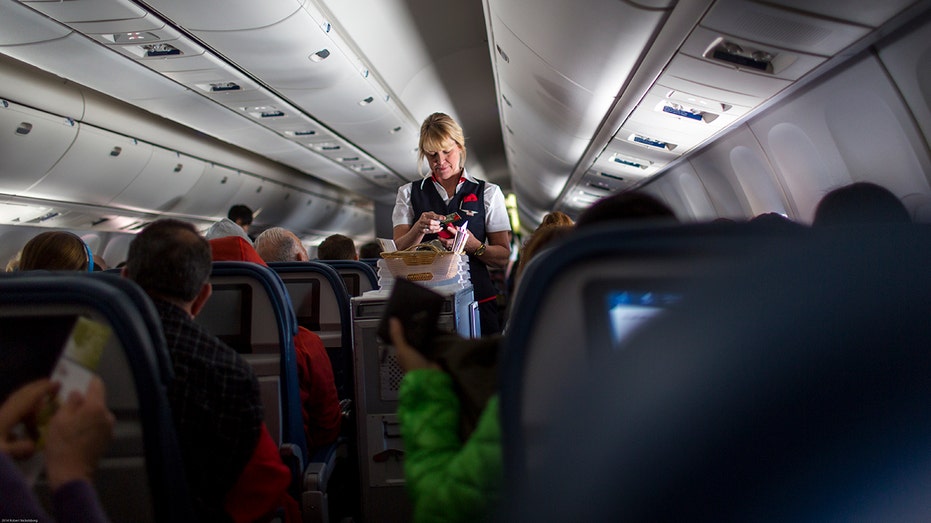
A Delta Airlines flight attendant is shown selling food on board a San Francisco, California bound plane April 11, 2014, outside of New York City. (Robert Nickelsberg/Getty Images / Getty Images)
The Gianulis family claims that a Delta flight attendant denied those requests — which “forced K.C. and his entire family to deplane and remain stranded in New York at great expense.”
In a response to the complaint, Delta said the flight attendant has the authority to make final decisions about in-flight accommodations.
| Ticker | Security | Last | Change | Change % |
|---|---|---|---|---|
| DAL | DELTA AIR LINES INC. | 32.92 | -0.43 | -1.29% |
When contacted by FOX Business, a spokesperson for Delta Air Lines said that “Delta doesn’t have anything to add on this specific situation” — and pointed to guidance on peanut allergies that the company’s website contains.
‘TOP 8′ FOOD CHALLENGE: WHAT IT MEANS, PLUS EXPERTS’ TIPS FOR NAVIGATING NUTRITIONAL NEEDS
That guidance states that when a passenger notifies Delta that they have a peanut allergy, “we’ll refrain from serving peanuts and peanut products onboard your flight. Instead, we’ll offer non-peanut snack items to everyone.”
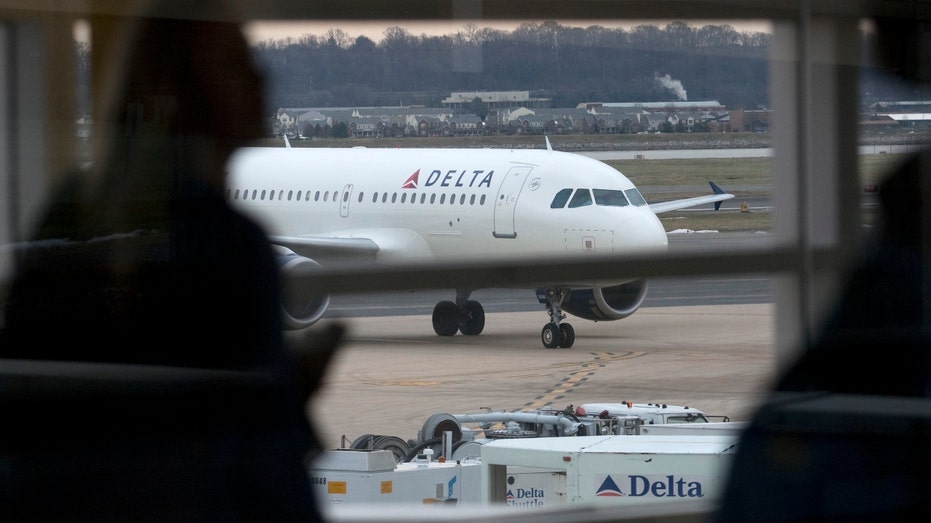
A Delta Air Lines Inc. jet taxis at Ronald Reagan International Airport in Arlington, Virginia, on Dec. 30, 2009. The Gianulis family claims that a Delta flight attendant denied their allergy accommodation requests. (Andrew Harrer/Bloomberg via Getty Images / Getty Images)
However, the page also states, “Though we always aim to work with you to make your flight safe and comfortable, we cannot guarantee a peanut- or nut-free flight or prohibit other customers from carrying nut products aboard.”
The complainant’s attorney, Mary Vargas of Stein & Vargas, LLP, in Maryland, responded to a request for comment from FOX Business by providing a copy of the formal complaint.
Potential dangers of peanut allergies
Alice Hoyt, M.D., chief allergist at the Hoyt Institute of Food Allergy in Metairie, Louisiana, told FOX Business that eating peanuts across the plane from someone with a peanut allergy would likely not cause a peanut-allergic person to have anaphylaxis.
“That is because, except in specific circumstances such as cooking seafood, rarely do food allergens become airborne,” she said.
“Ingestion of the food allergen is nearly always required for food allergen-induced anaphylaxis to occur.”
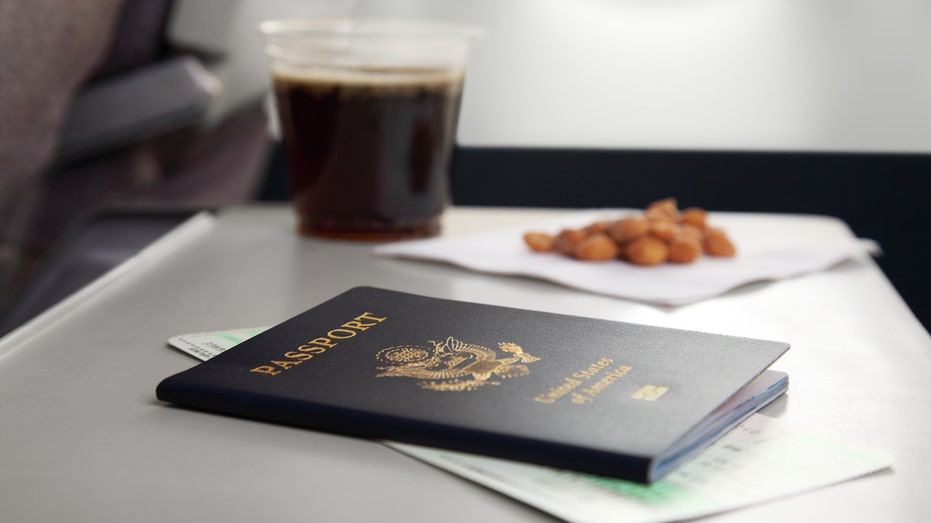
An allergist said that eating peanuts across the plane from someone with a peanut allergy would not cause a peanut-allergic person to have anaphylaxis. (iStock / iStock)
Additionally, peanut dust is relatively heavy, Hoyt said, so it does not go airborne — “it simply falls down.”
Dr. Natasha Bhuyan, a family physician in Phoenix, Arizona, agreed that the risk would be minimal if other passengers were given peanuts.
“Other passengers eating peanuts in a different spot of the plane putting an allergic person in danger is unlikely,” she told Fox News Digital.
TEXAS ICE CREAM STORE EMPLOYS THOSE WITH DISABILITIES IN EFFORT TO BOOST CUSTOMER SERVICE INDUSTRY
“Studies show that airborne exposure to peanut protein is a very low risk for leading to severe anaphylactic reactions,” the doctor added.
A study from the American College of Asthma, Allergy and Immunology showed that children who were exposed to open peanut butter containers didn’t have severe allergic reactions, Bhuyan said.
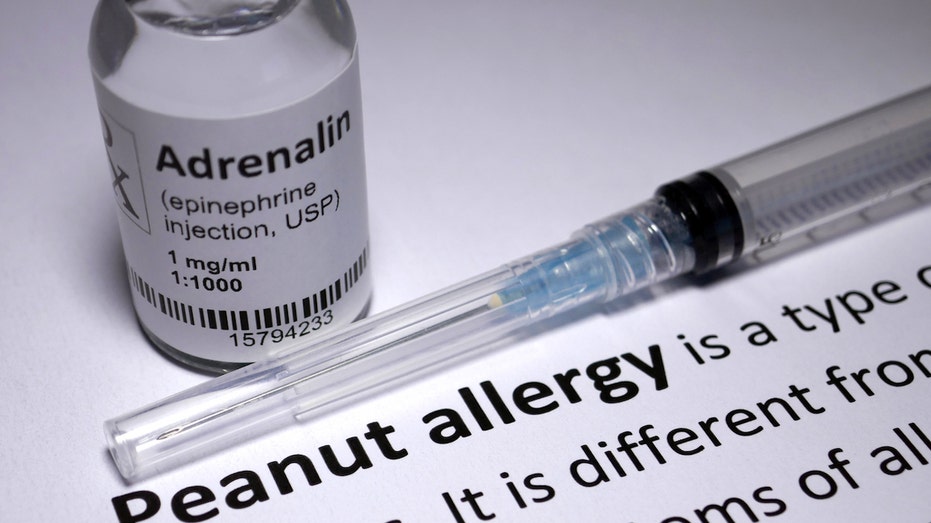
An allergist recommended that passengers with allergies carry their emergency medications to ensure safe flying. (iStock / iStock)
However, Hoyt noted that “it is reasonable for food allergy families to be concerned when flying if the allergens are on the plane.”
She added, “Bluntly stated, if a peanut nearly killed your child, would you want the person sitting next to her chowing down on a packet of airline-provided peanuts?”
Beyond physical effects, Hoyt warned of the potential for a physiologic reaction.

“When someone sees or smells their allergen, it can trigger panic, which can cause symptoms such as increased heart rate, trouble breathing, nausea and skin flushing,” an allergist said. (iStock / iStock)
“When someone sees or smells their allergen, it can trigger panic, which can cause symptoms such as increased heart rate, trouble breathing, nausea and skin flushing — all of which are symptoms that can occur with a severe allergic reaction,” she said.
“If this happens to any food allergy patient, and especially to a child, it can be difficult to differentiate anaphylaxis from a panic attack, and nobody wants to see their fellow passenger suffering or to have to make an emergency landing.”
CLICK HERE TO SIGN UP FOR OUR HEALTH NEWSLETTER
Bhuyan added that overall, “food allergies can be tricky.”
“The bottom line is that food particles containing peanut proteins can become airborne, especially during the grinding of peanuts,” she said.
“If someone with an allergy inhales these, they can have a reaction — but it’s generally not severe or anaphylaxis.”
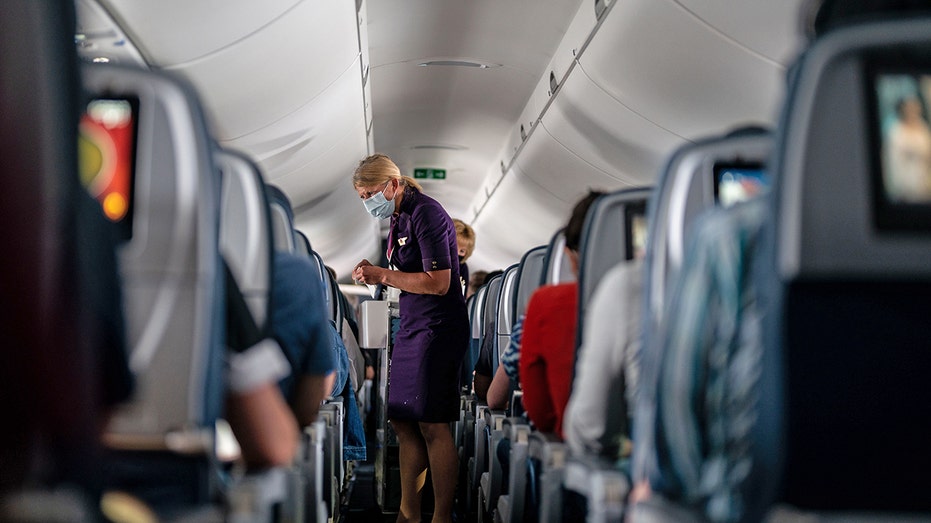
Flight attendants hand out refreshments to a packed Delta Air Lines flight traveling from Ronald Reagan National Airport to Minneapolis-Saint Paul International Airport on May 21, 2021. (Kent Nishimura/Los Angeles Times via Getty Images / Getty Images)
Hoyt stressed how important it is for non-allergic passengers to display “support and understanding” for passengers with food allergies, and for those passengers to carry their emergency medications to ensure safe flying.
Food allergy-related policies, Hoyt also said, should be “clear and adopted” across airlines so that families have clear expectations and can plan accordingly.
GET FOX BUSINESS ON THE GO BY CLICKING HERE
“Being caught off-guard and/or being told one thing by one airline employee and then being told something different when on board is unacceptable, whatever the issue,” she told FOX Business.
“Permitting food allergy individuals and their families to pre-board is imperative, as it allows them to clean their seating area, removing any residual allergen left behind by previous passengers.”
For more Health articles, visit www.foxnews/health.






